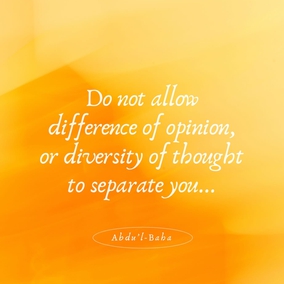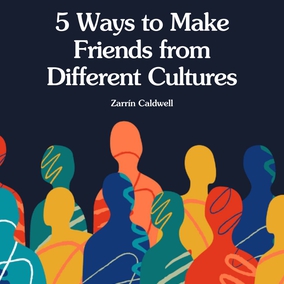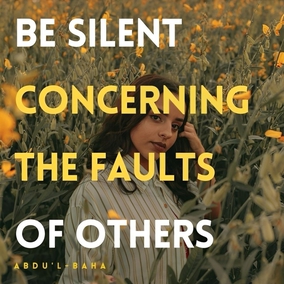The views expressed in our content reflect individual perspectives and do not represent the authoritative views of the Baha'i Faith.
Rejoice not in the things ye possess; tonight they are yours, tomorrow others will possess them. – Baha’u’llah, Gleanings from the Writings of Baha’u’llah, p. 137.
How—and what–do you worship?
 Most people might answer that question by saying they attend a worship service once a week or recite a prayer to God every day or maybe find some time to silently meditate—but the idea of worship has a much wider and more extensive connotation than just those activities.
Most people might answer that question by saying they attend a worship service once a week or recite a prayer to God every day or maybe find some time to silently meditate—but the idea of worship has a much wider and more extensive connotation than just those activities.
The word worship means “to give worth to something.” When you worship, you offer your honor, love and admiration. You assign a paramount level of worthiness or value to what you worship, and devote your efforts in that direction.
Everyone worships something.
That may sound strange, in our increasingly agnostic era, until you think of the word worship as separate from its traditional religious context.
In the broadest sense, each person determines what they value as they grow; and then assigns levels of importance to those valuations. The big question then becomes: which ranks highest? What, in this life, do you value most? After you meet your physical needs—food, clothing, shelter–what motivates you, makes you work the hardest, has the most appeal? Where do you expend the majority of your energy and effort?
If you can answer those questions, you’ll know what you worship.
Many people devote their lives to temporal goals—desiring wealth, comfort, success, fame, etc., and believing that acquiring those things will make us happy. Having these kinds of material ideals simply means that we apply the bulk of our efforts toward that paramount goal we want to achieve.
Most of those goals, though, have built-in limitations. Our short human lifespan in this physical plane of existence guarantees that no material goal, no matter how ambitious or lavish, can possibly endure. That’s because we leave everything behind when we depart from this world and move on to the next stage of our soul’s development.
In fact, the Baha’i writings say that no matter how much material wealth we achieve, it will not give us the lasting honor and exaltation we desire:
No riches, wealth, comfort or ease of the material world is equal to the wealth of a bird; all the areas of these plains and mountains are its dwelling, and all the seeds and harvests are its food and wealth, and all the lands, villages, meadows, pastures, forests and wildernesses are its possessions. Now, which is the richer, this bird, or the most wealthy man? for no matter how many seeds it may take or bestow, its wealth does not decrease. Then it is clear that the honor and exaltation of man must be something more than material riches. – Abdu’l-Baha, Some Answered Questions, p. 79.
All possessions are transient, and detaching from them can open up our minds and souls to a wider, more profound reality. This is what Buddha meant when he told his followers that the way to joy is detachment. When we realize that our material possessions can never satisfy or define us, we can begin to truly worship what lasts:
We must strive to attain to that condition by being separated from all things and from the people of the world and by turning to God alone. It will take some effort on the part of man to attain to that condition, but he must work for it, strive for it. We can attain to it by thinking and caring less for material things and more for the spiritual. The further we go from the one, the nearer we are to the other. The choice is ours.
Our spiritual perception, our inward sight must be opened, so that we can see the signs and traces of God’s spirit in everything. Everything can reflect to us the light of the Spirit. – Abdu’l-Baha, quoted in J. E. Esslemont, Baha’u’llah and the New Era, p. 89.
Attach not thyself to anything unless in it thou seest the reality of God – this is the first step into the court of eternity. The earth life lasts but a short time, even its benefits are transitory; that which is temporary does not deserve our heart’s attachment. – Abdu’l-Baha, Divine Philosophy, p. 134.
You May Also Like
Comments

















What do you make of the following extract vis-a-vis worship of mammon?
“…the crass materialism, which lays excessive and ever increasing emphasis on material well-being, forgetful of those things of the spirit on which alone a sure and stable foundation can be laid for human society. It is this same cancerous materialism, born originally in Europe, carried to excess in the North American continent, contaminating the Asiatic peoples and nations, spreading its ominous tentacles to the borders of Africa, and now invading its very heart, which Bahá’u’lláh in unequivocal and emphatic language denounced ...in His Writings, comparing it to a devouring flame and regarding it as the chief factor in precipitating the dire ordeals and world-shaking crises which must necessarily involve the burning of cities and the spread of terror and consternation in the hearts of men. Indeed a foretaste of the devastation which this consuming fire will wreak upon the world, and with which it will lay waste the cities of the nations participating in this tragic world engulfing contest has been afforded by the last World War, marking the second stage in the global havoc which humanity, forgetful of its God and heedless of the clear warnings uttered by His appointed Messenger for this day, must, alas, inevitably experience.”
Shoghi Effendi, Citadel of Faith [1954] p124
David, do published guidelines exist as to what's allowed and not allowed on this site in the comments section?